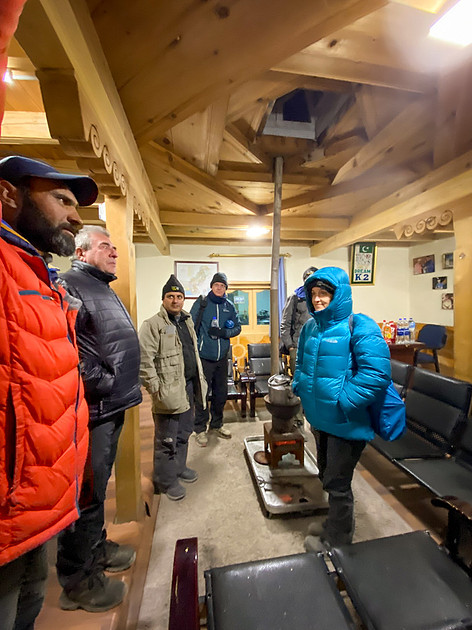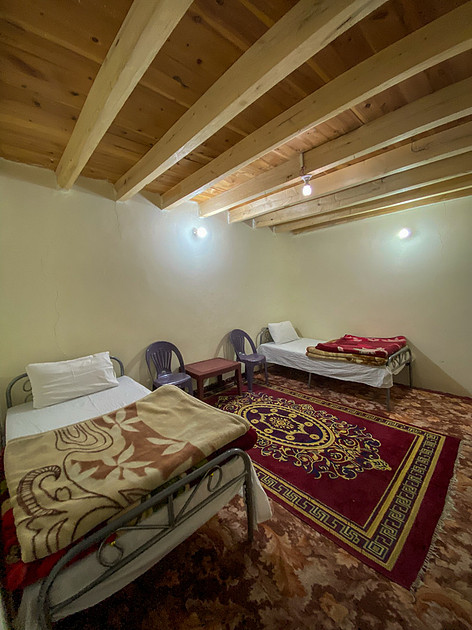Travel


"Travel is fatal to prejudice, bigotry, and narrow-mindedness, and many of our people need it sorely on these accounts. Broad, wholesome, charitable views of men and things cannot be acquired by vegetating in one little corner of the earth all one's lifetime." From The Innocents Abroad by Mark Twain
Friends thought I was crazy to visit Pakistan in 2023. Surely, I was in danger, they told me. But my visit revealed the opposite.
The people of Pakistan were welcoming, and I never experienced a sense of danger. A visit to one Pakistani village in particular will never be forgotten.
Shimshal
Shimshal is a remote village in the Hunza District of the Gilgit–Baltistan region in northern Pakistan. Located just 62 miles from the Chinese border, it’s the highest settlement in the district at 10,213 feet above sea level. There are approximately 250 households with two thousand inhabitants who live there.
It’s also the name of the largest valley in Gilgit-Baltistan, encompassing almost the entire district. The Shimshal River flows through it.
Our group’s Pakistani guide, Muqeem Baig, is from the village. He is an extraordinary athlete and one of the kindest and gentlest people I have ever met.


Me, Muqeem Baig, and Jon Christofersen
Muqeem's ancestors settled in the Shimshal Valley when Shimshal was first settled in 1450. The village was isolated for centuries. Reaching the nearest village, Passu, required a trek of three days over incredibly challenging terrain.


An ancient shelter along the trek is at the bottom of the image


A serpentine part of the trek is above the car leading to a pass
After 30 generations of living at high altitude, their strength and ability to function there is legendary. Pakistan's elite trekkers and climbers come from Shimshal.
Muqeem’s father was one of the first to climb K2, the second highest mountain in the world. And if you are climbing the 28,251-foot summit of K2, the high-altitude porters on your team are from Shimshal.
The Road to Shimshal
There was no road to Shimshal until 2003. The villagers spent 18 years hand carving a one-lane, unpaved, rocky, winding, mountain road through dozens of miles of sheer cliffs. Beginning from a turnoff on the Karakoram Highway, the road winds 37-miles up a cavernously deep valley with amazing rock formations.
The mountain is so steep that the sunlight never hits parts of the valley and river thousands of feet below. Sections of the road are supported by meticulously dry-fitted rock retaining walls, assembled with great care and skill. This traditional technique allows the walls to flex slightly and drain water naturally, making them durable.
It’s just wide enough for a single car. And sometimes it is barely tall enough for a car as it occasionally cuts into precipitous cliff faces towering hundreds of feet above the road. And it winds though boulders as big as a house.
Even the bridges are interesting. Wooden suspension bridges undulate as you slowly drive across them. You must wait for them to become still before slowly easing your vehicle across. A short video of a bridge crossing is at Zenfolio | Chuck Derus | Pakistan
The three-hour drive is “exhilarating.” Check out Jon Christofersen’s video of three minutes of this nail-biting experience at Zenfolio | Chuck Derus | Pakistan Despite its terrifying appearance, there have been no fatalities in its 22-year history.
When you finally arrive in Shimshal, you are greeted by a beautiful maze of irrigation channels running between green fields of crops. Well-maintained mud and stone houses, a school, and dirt roads lined with hand-constructed rock walls are spread evenly throughout the village. Apricots harvested from the surrounding trees are commonly seen drying on rooftops.


An apricot grove in Shimshal


A view of our hotel in Shimshal
The arid landscape features high altitude meadows for grazing surrounded by mountain peaks reaching well over 22,000 feet. Glacial meltwater powers a small hydroelectric plant (sometimes).
Our Visit
The decision to visit Shimshal was at the last minute. After the excitement and fatigue of travel, we were exhausted. It was well past tourist season, and nothing was open.
Thanks to the hospitality of the villagers, they opened the only hotel in town and laid out clean sheets and four blankets. We needed those blankets as the electric power wasn’t sufficient to run space heaters, and it dropped to freezing during the night.
Despite the late hour and no restaurants, the villagers warmed up the lobby and brought in food and tea for our group.


Warming up in the community room before tea


My room for the evening in Shimshal
The Shot
Today’s Friday Photo is by our tour guide Muqeem. Our intrepid group of photographers awoke well before sunrise and hiked about a mile out of the village to an overlook. But the sun didn’t cooperate, and no photographs were taken.
We returned to the village to wander around before packing. While I snapped travel photos, I couldn’t help thinking about the resilience, kindness, and generosity of our Shimshali hosts.
All of my first world problems were rendered insignificant. And whatever lingering preconceptions I had about Pakistanis vanished.
Muqeem’s iPhone image from that morning seemed to capture the beauty of his village. He graciously granted me permission to use it for my blog. Thank you, my friend.
Thanks for looking,
Chuck Derus